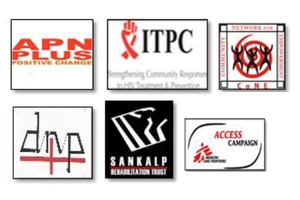Treating drug-sensitive TB in India: Implementation of daily therapy with fixed-dose combinations
A briefing document outlines critical steps needed to implement a new policy from the Indian government to switch to standard daily TB treatment using fixed-dose combinations. This change, which is in line with global recommendations for proper treatment, is welcome but has yet to be put into action.
New Delhi, 20th March 2015: Ahead of World TB Day, Asia Pacific Network, International Treatment Preparedness Coalition-South Asia, Delhi Network of Positive People, Community Network for Empowerment (Manipur), Sankalp Rehabilitation Trust and MSF Access Campaign welcome the news that the Central TB Division will soon switch from intermittent (three times in a week) to daily treatment for drug-sensitive TB as part of Directly Observed Treatment (DOTS).
Currently, India uses single drugs formulations for each of the drugs that are part of the recommended drug-sensitive TB (DS-TB) treatment regimen. It is likely that the TB programme will also introduce daily fixed-dose combinations (FDCs) as an additional step to ensuring proper treatment. FDCs simplify treatment, reduce pill burden, the management of drug supply, and may also limit the risk of drug-resistant tuberculosis arising as a result of monotherapy.
However, this policy change is yet to reflect in the actual
activities of the government. There has been no announcement of
the selected districts in which the roll out is being planned,
nor of any training being made by the TB programme in this
regard. With India bearing such a huge burden of tuberculosis
and drug-resistance, immediate actions need to be taken by the
government to roll out daily FDCs in the DOTS programme. (See
the briefing document below).
“Treatment adherence and care-giving is so much easier
with the use of daily FDCs. But introduction of FDCs and daily
therapy in India’s DOTS programme have been long delayed
by the Central TB Division based on premises that were
programme-based (e.g. logistics and cost) rather than
patient-focused (e.g. simplification of treatment, reducing
pill burden). The time has come to phase out intermittent
therapy – which serves as a perfect recipe for treatment
interruptions - and switching to daily FDC drug regimens for
treatment of TB. The adoption of FDCs daily regimen in
vulnerable groups like people living with HIV and people who
inject drugs (PWID) is a long standing demand”.
Hari Shankar, A person living with HIV who was co-infected with
TB and underwent DOTS treatment
Delhi Network of Positive
People
Briefing document:
Treating drug-sensitive TB in India: Implementation of
daily therapy with fixed-dose combinations


